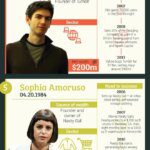Think being a millionaire is out of the question? Guess again. If you avoid consumer debt and start investing when you’re in your twenties or thirties, you can be a millionaire.
Here’s how:
Let’s assume you have $0 in your investment account right now. You have no debt, but you haven’t saved anything, either.
Let’s assume you put your investments into a tax-deferred account, such as a 401(k).
Let’s also assume that your investments, over the long haul, with grow at an annualized average rate of 7 percent. (Investing legend Warren Buffet predicts the long-term annualized return of the U.S. stock market in the early-to-mid 21st century will be 7 percent.)
Remember: this is a very, very long-term average (over the span of 20 years or more). In any given year, your investments might be up or down.
Don’t fret about that. One year – or three years, or five years – is small-scale when you’re talking about a lifetime portfolio.
With those three assumptions in mind – you’re starting at $0, you’re investing in a tax-deferred account, and you’ll get a 7 percent return over the long haul – let’s look at how much you need to invest to create a $1 million portfolio.*
If You Save: $100 per month
You’ll Be a Millionaire In: 58 years and 6 months. That’s a long time – if you’re 25 now, you’ll be 83 by the time you’re a millionaire – so I recommend saving more.
If You Save: $200 per month
You’ll Be a Millionaire In: 48 years and 10 months. Notice how simply saving an extra $100 per month ($200/mo instead of $100/mo) shaves a decade off the time it takes you to become a millionaire.
If You Save: $400 per month
You’ll Be a Millionaire In: 39 years and 4 months. That means if you’re 25 now, you’ll be a millionaire at age 64 – in time for retirement.
If You Save: $750 per month
You’ll Be a Millionaire In: 31 years, 1 month. If you’re 25 now, you’ll be a millionaire at age 56. Did someone say “early retirement?”
If You Save: $1000 per month
You’ll Be a Millionaire In: 27 years and 6 months. If you have a baby today, you’ll be a millionaire by the time you dance at your child’s wedding — or maybe by the time your little grandchild is born. (Based on the rough average age at which Americans get married.)
If You Save: $1500 per month
You’ll Be a Millionaire In: 22 years and 9 months. What a huge improvement over the “58 years” we were quoting at the $100/month savings rate!
If You Save: $2000 per month
You’ll Be a Millionaire In: 19 years and 7 months. Have a baby today, and you’ll be a millionaire when he or she is a college freshman/sophomore.
If You Save: $2500 per month
You’ll Be a Millionaire In: 17 years and 3 months. Have a baby today, and you’ll be a millionaire before your kid is out of the house. If you’re currently 25 years old, you’ll be a millionaire by age 42.
I’m guessing your next question is something along the lines of “How on earth am I supposed to save $2,500 per month?”
I can boil that answer down to four words: Earn more. Spend less.
written by M Harun of Aceh Forex Business. see more.





























